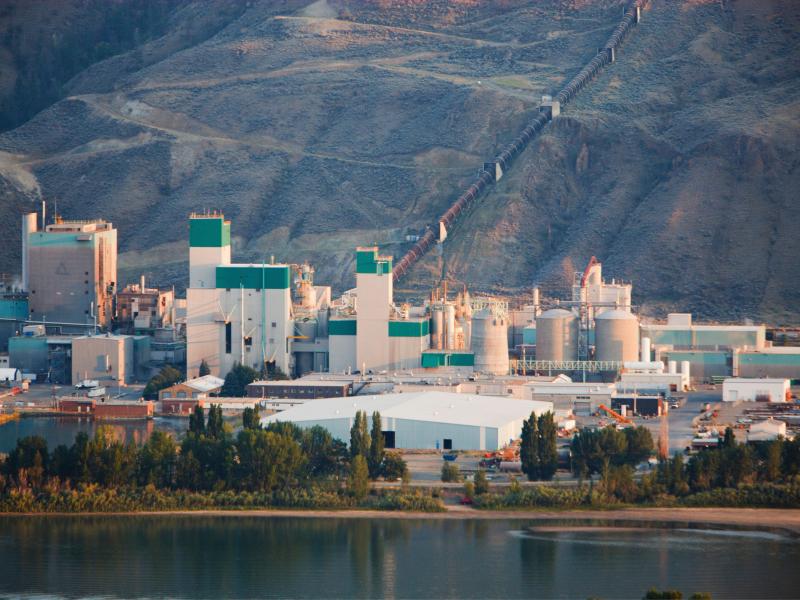Recent Articles
No cookie-cutter approach to sustainability for H&R
No cookie-cutter approach to sustainability for H&R
Continuously improving the energy efficiency of large office towers takes more than a one-size-fits-all approach, according to the experience of H&R REIT. The firm’s Brian Canfield Centre in Burnaby, B.C., won an ENERGY STAR commercial building of the year award.
B.C. offers rebates for EV charging stations in condos
The British Columbia government is helping apartment and condo owners plug into the growing demand for electric vehicles by offering rebates and other funding to install chargers in their buildings.
B.C. unveils plan to meet climate action targets
• Globe and Mail • Vancouver Sun • Global News
B.C. Premier John Horgan released his government’s latest plan to meet its commitment to reduce greenhouse gas emissions (GHG) by 2030, even as new data shows pollution levels steadily rising since the climate action target was set 14 years ago.
 |
CaGBC’s Disclosure Challenge helps CRE Canada attain sustainability |
Vice President, Market Engagement and Advocacy
CRE falls behind on flood resiliency as risk rises
• Bisnow
Acknowledgment of climate change and the risks it poses for property owners and investors, especially through flooding, is growing. A Federal Emergency Management Agency policy change involving flood insurance is helping the federal government add to that awareness.
CPP Investments appoints chief sustainability officer
• CPP Investments • Cision • Financial Post
CPP Investments announced the appointment of Deborah Orida as the organization’s first Chief Sustainability Officer (CSO). In addition to becoming the organization’s first CSO, Orida will maintain her role as senior managing director and global head of real assets.
How women can get themselves on boards
• Globe and Mail • Betakit • Pembina
When Cybele Negris, co-founder & CEO of Webnames.ca, launched her domain registrar company in 2000, the culture in her industry was overwhelmingly male. Now, Ms. Negris’ influence in the business community reaches well beyond her own multi-million-dollar company.
Calgary’s mayor wants to declare ‘climate emergency’
• Financial Post • Globe and Mail
PODCAST: Alberta, where oil and gas remains the largest sector, has a huge transition ahead of it in the next two decades, as the effects of climate change become more pronounced and demand for fossil fuels is expected to decline.
Large corporations need more than climate slogans
For decades, fossil fuel interests have lobbied against progressive climate policies, while corporations in other sectors sat on the sidelines of the debate. That is now changing, as companies have started to match their environmental slogans with positive action.
U of T to sell all fossil fuel investments by end of 2030
• Globe and Mail • Financial Post
The University of Toronto will divest from fossil fuels as part of its commitment to combatting climate change. The university said it would end any direct investment in fossil fuel companies within a year.
EU’s ABP to divest US$17.4B fossil fuel assets
Europe’s biggest pension fund, ABP of the Netherlands, has joined several investment managers blacklisting fossil fuels as the finance industry gives in to pressure from activists and customers alarmed at the prospect of a climate catastrophe caused by carbon emissions.
Sustainability bonds surge: to top $1T in 2021
Green, social, sustainability and sustainability-linked bonds (GSSS) will reach a combined $1 trillion in 2021 as the amount of the bonds issued so far this year has nearly doubled compared to 2020, according to a report from Moody’s ESG Solutions.
Apple doubles clean energy suppliers ahead of COP26
Apple Inc. said it has more than doubled the number of suppliers exclusively using clean energy, advancing its pledge to have a fully carbon-neutral supply chain by 2030. The announcement comes days before the start of COP26.
Top businesses set net-zero goals, offset emissions
• Environment and Energy Leader
More than 60 per cent of DOW 30, EURO STOXX 50 and FRSE 100 companies have committed to making net-zero goals, doubling since 2020. Of those, 36 per cent have offset their carbon emissions, according to a report by EcoAct.
Investment approach applies ESG to funding sources
• GreenBiz
As environmental, social and governance standards increasingly become mainstream in finance, savvy investors should expand their definition of ESG to include the origins of the funding behind their portfolios and how the profits they produce are used.
How carbon emissions impact lending behaviour
• Lexology
In June 2021, the Bank for International Settlements released a working paper in which a sample of syndicated loans was analyzed to determine whether lead lenders price “carbon risk” into syndicated loans and, if so, how.
46 countries to protect environmental defenders
Nearly four dozen countries in Europe and central Asia have agreed to improve protections for environmental defenders who voice concerns on issues like the construction of dams, harmful agricultural policies, fallout from oil projects and illegal logging in forests.
More needed to prevent deaths from heat waves, fires
A report examining the health impacts of climate change says more Canadians than ever are facing serious health risks from heat waves and wildfires, prompting warnings from doctors that we need to do more to adapt to a warmer planet.
OECD countries to end export credits for coal power plants
Most Organisation for Economic Cooperation and Development (OECD) countries have agreed to stop providing export credits for coal-fired power plants. The countries participating are Australia, Britain, Canada, the European Union, Japan, Korea, New Zealand, Norway, Switzerland, Turkey and the U.S.
Countries to miss $100B climate aid pledged to poor nations
A goal to raise US$100 billion to help developing nations adapt to and mitigate against climate change is unlikely to be met for two years, according to a report from Canadian Environment Minister and Germany’s state secretary for the environment.
 Industry Events
Industry Events
-
ECO IMPACT 2026
Feb 19 2026
to Feb 20 2026
The Westin Calgary
-
BuildGreen Atlantic
Apr 27 2026
to Apr 28 2026
Halifax, NS
-
The Evergreen Conference
May 06 2026
to May 07 2026
Toronto, ON
-
Building Lasting Change
Jun 17 2026
to Jun 19 2026
Montréal, QC
-
Retrofit Canada Conference
Jun 24 2026
to Jun 25 2026
Halifax Convention Center











